
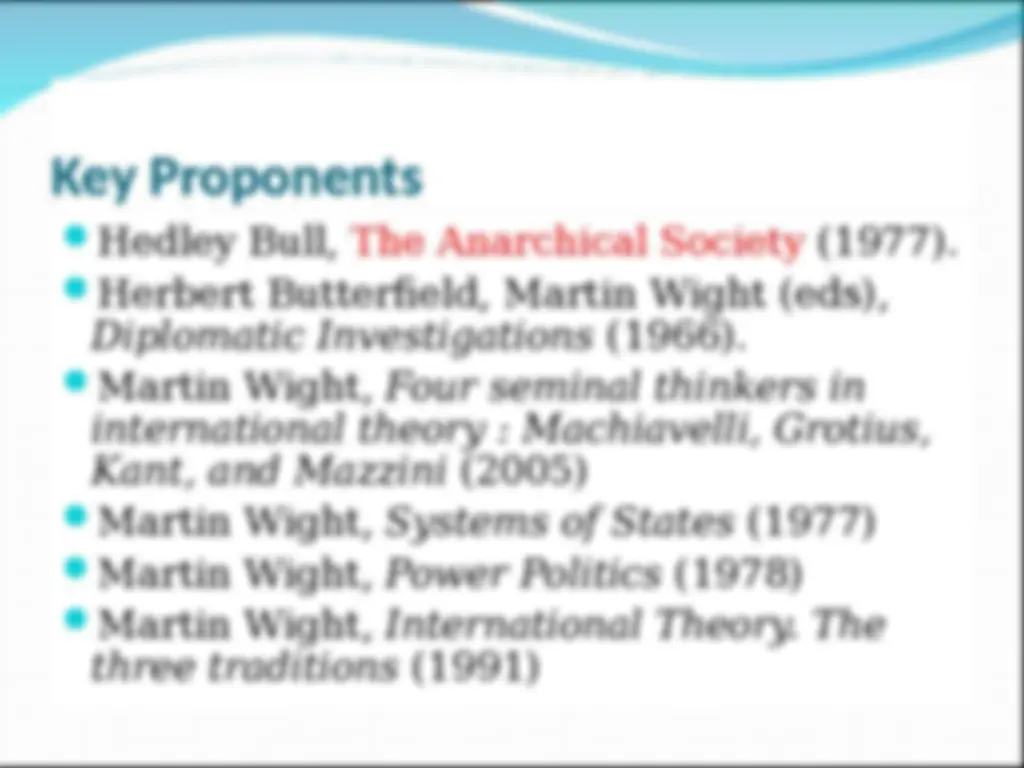
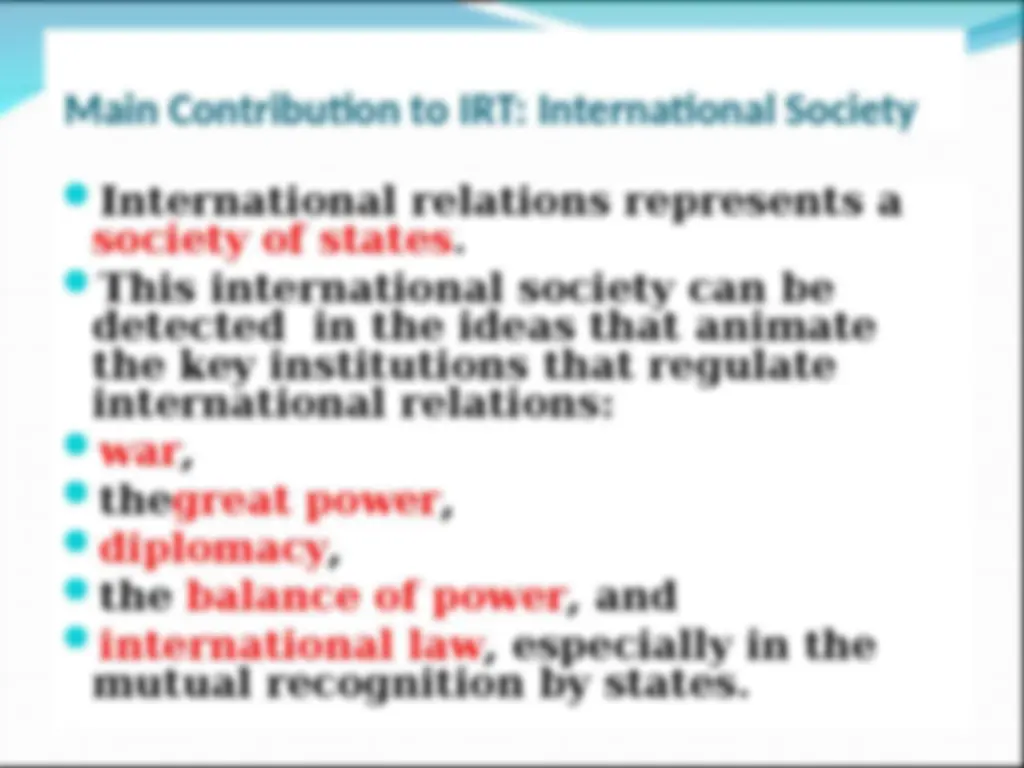
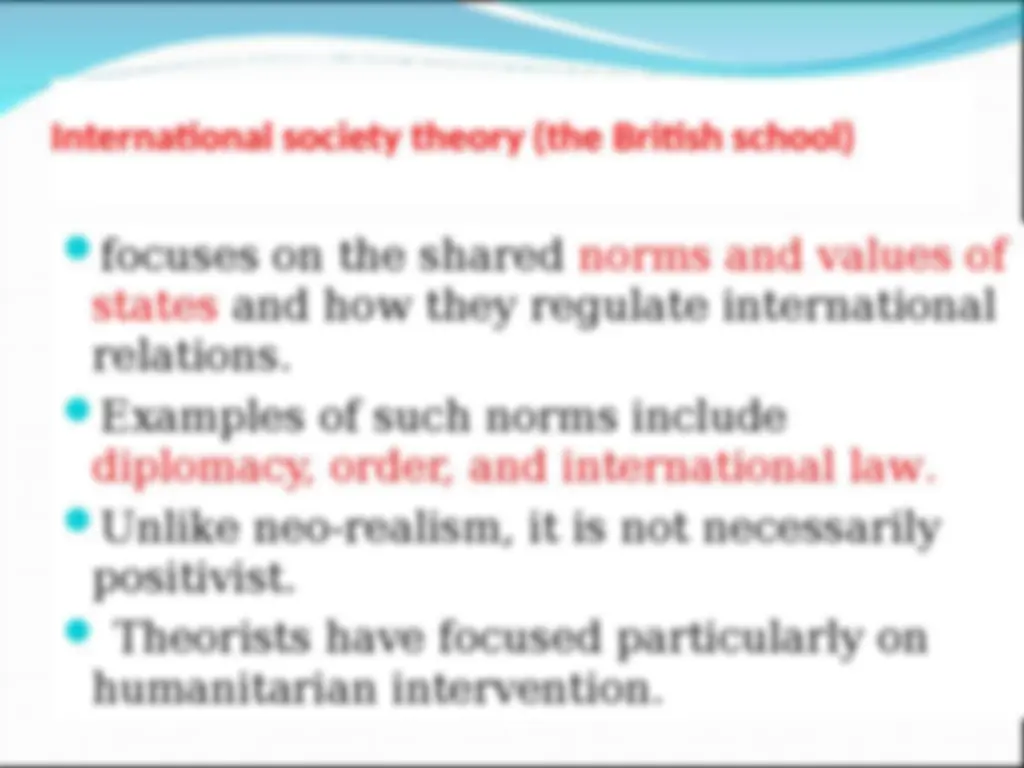
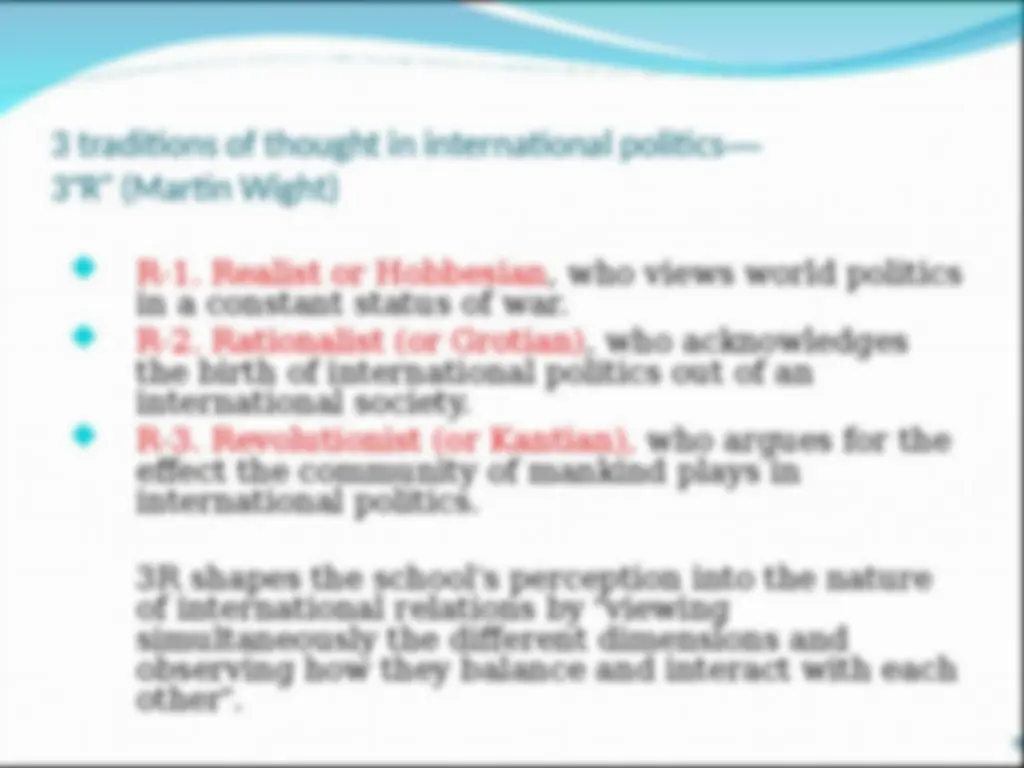
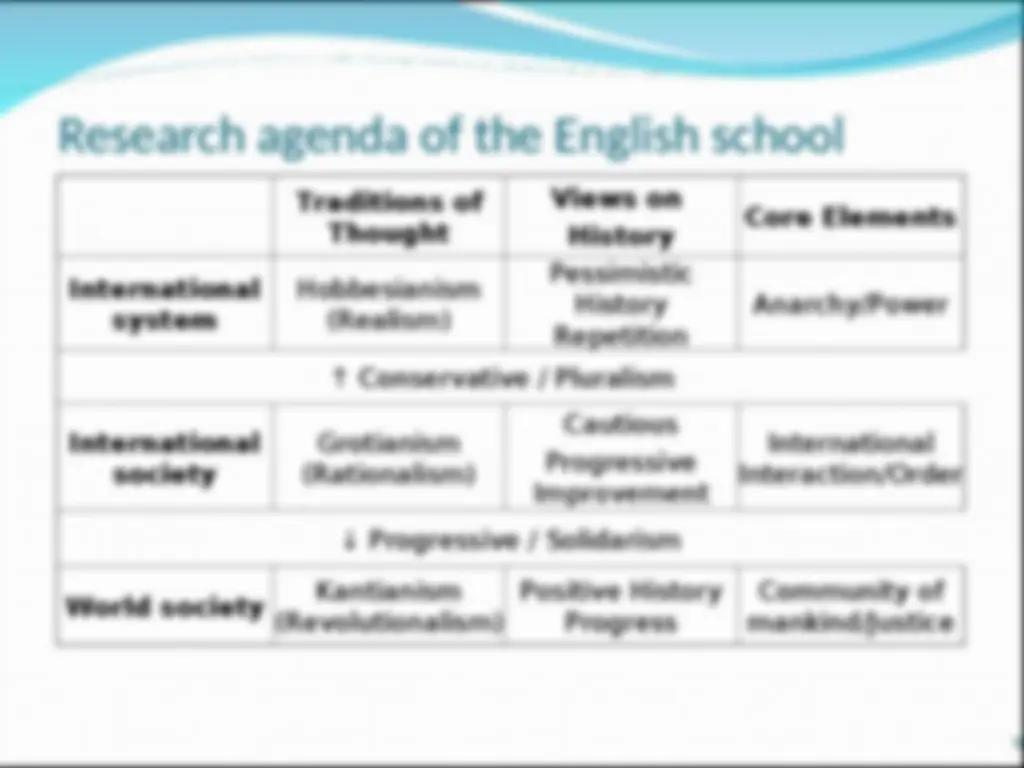
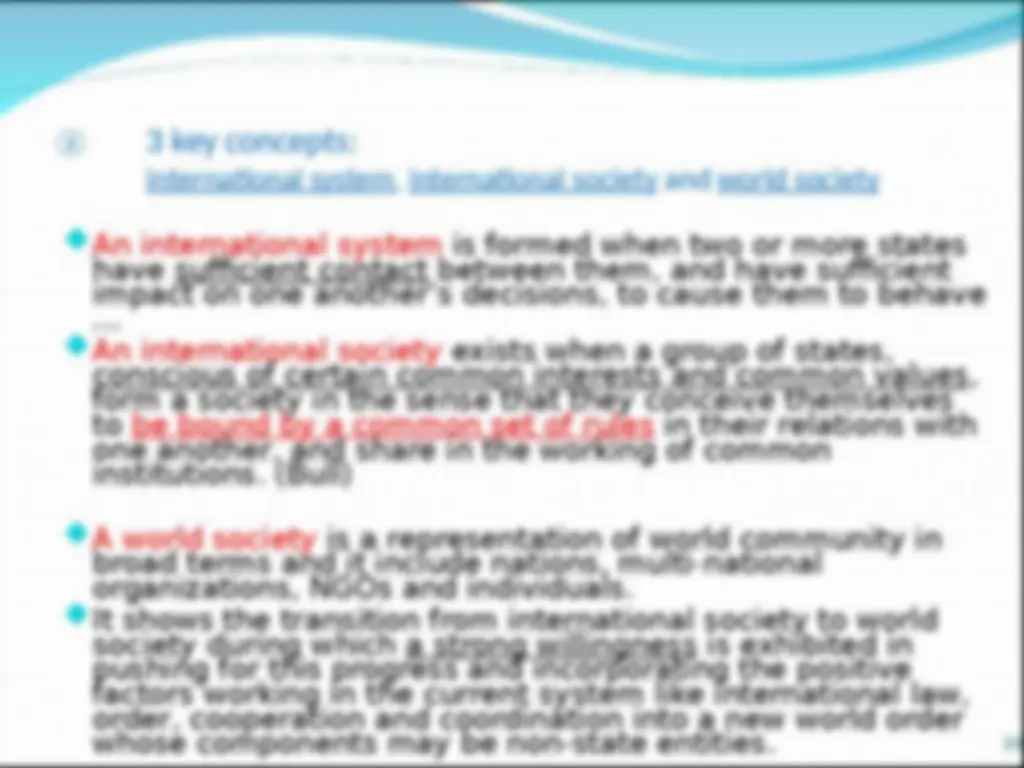
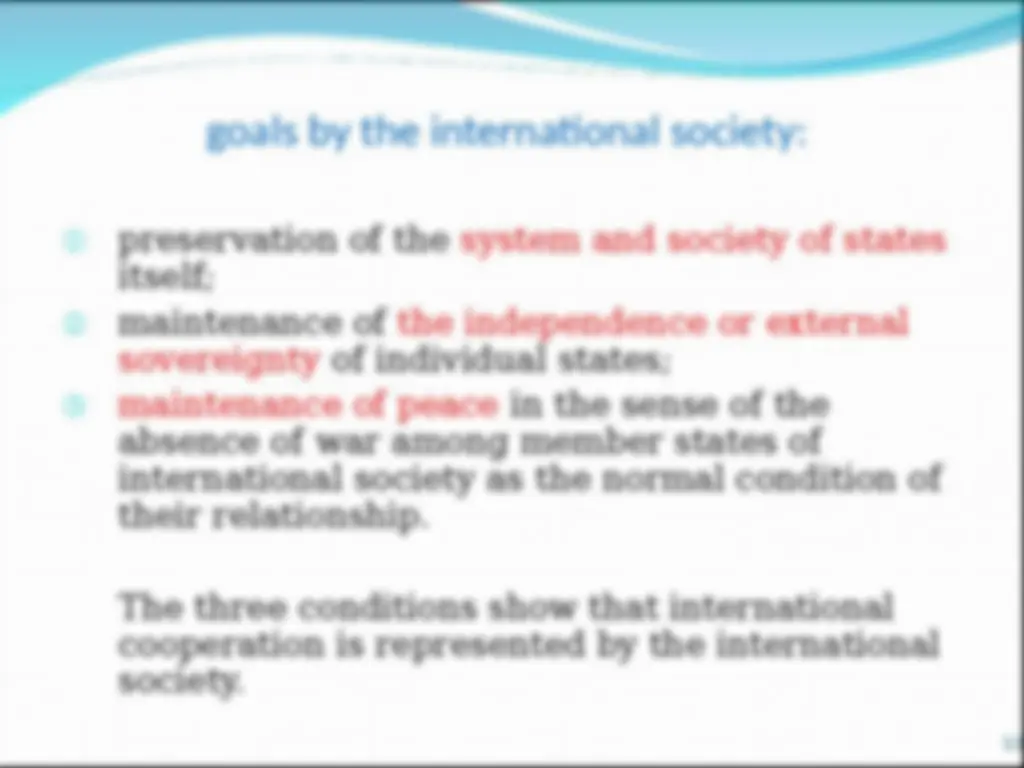
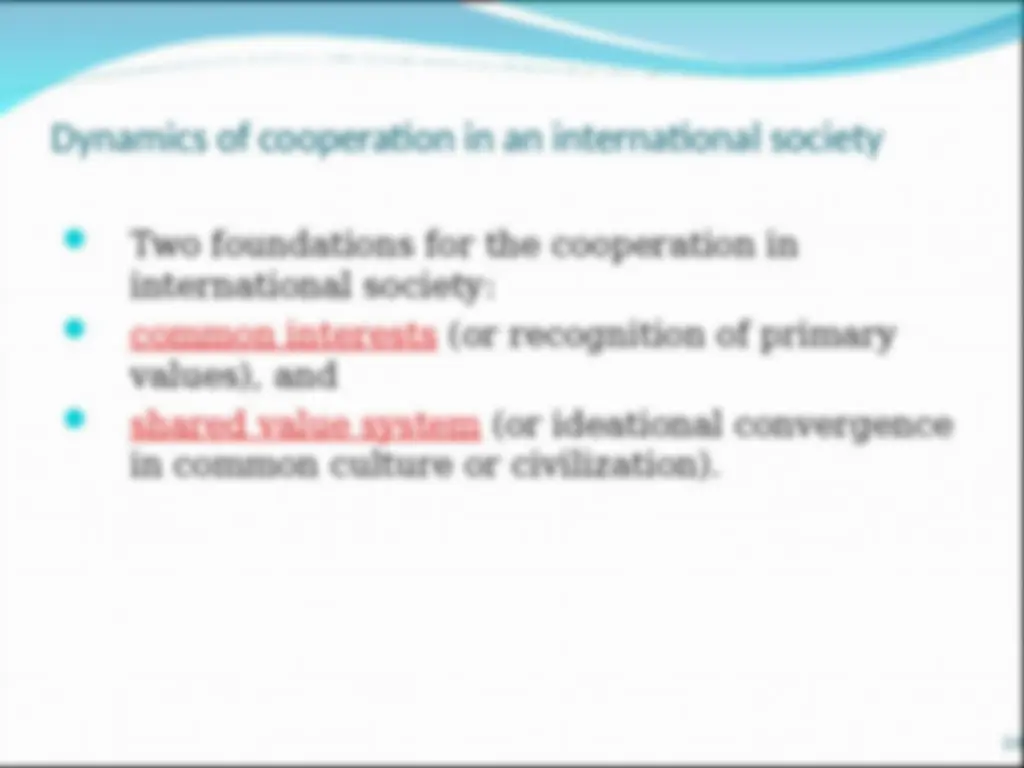
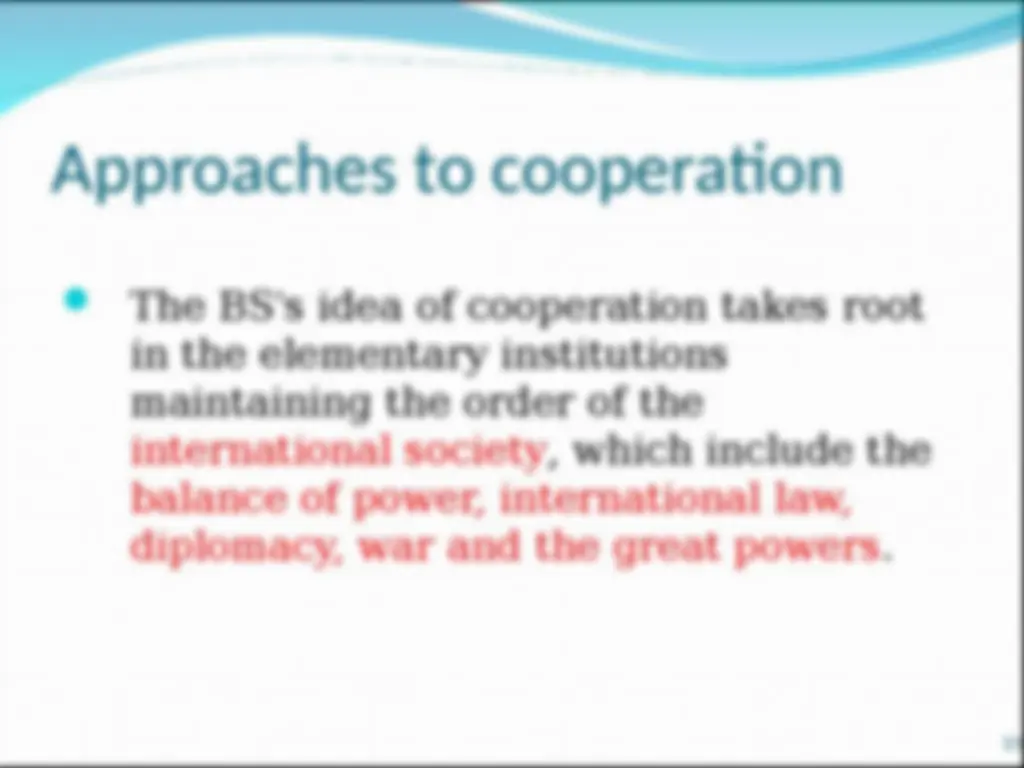
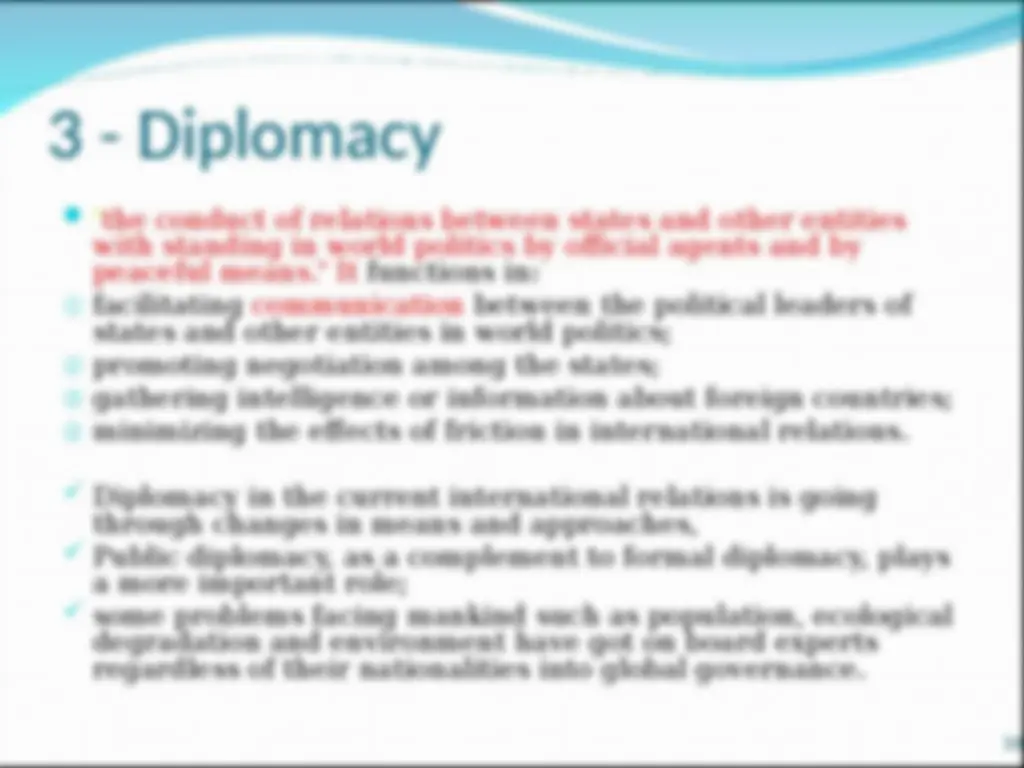
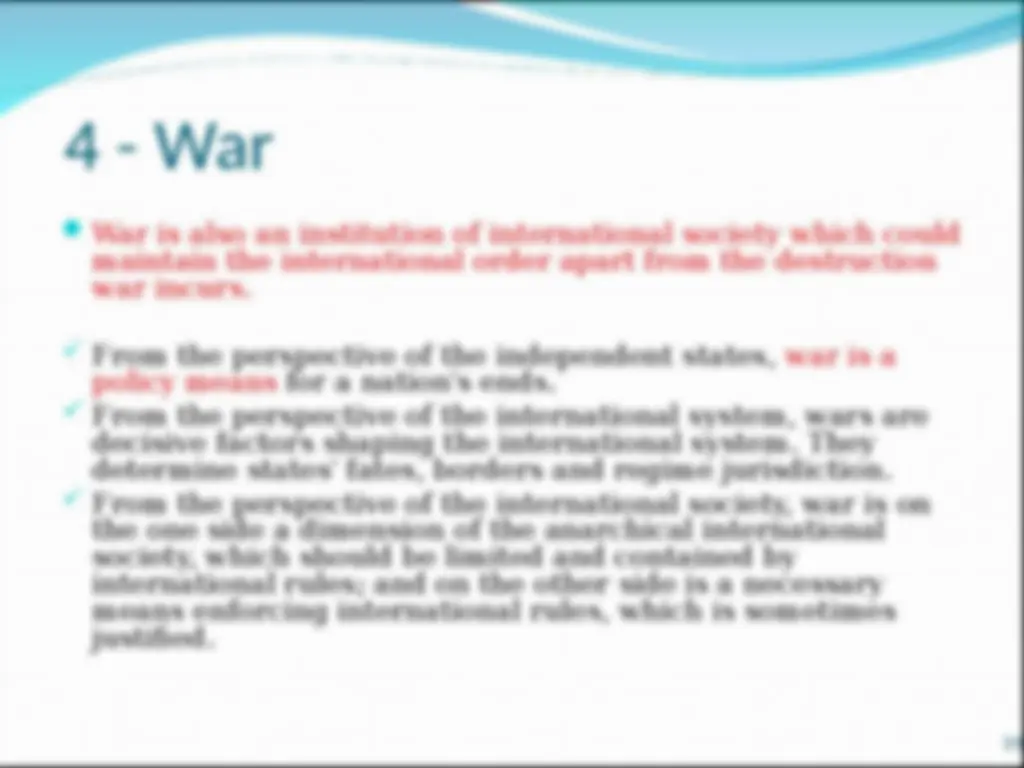
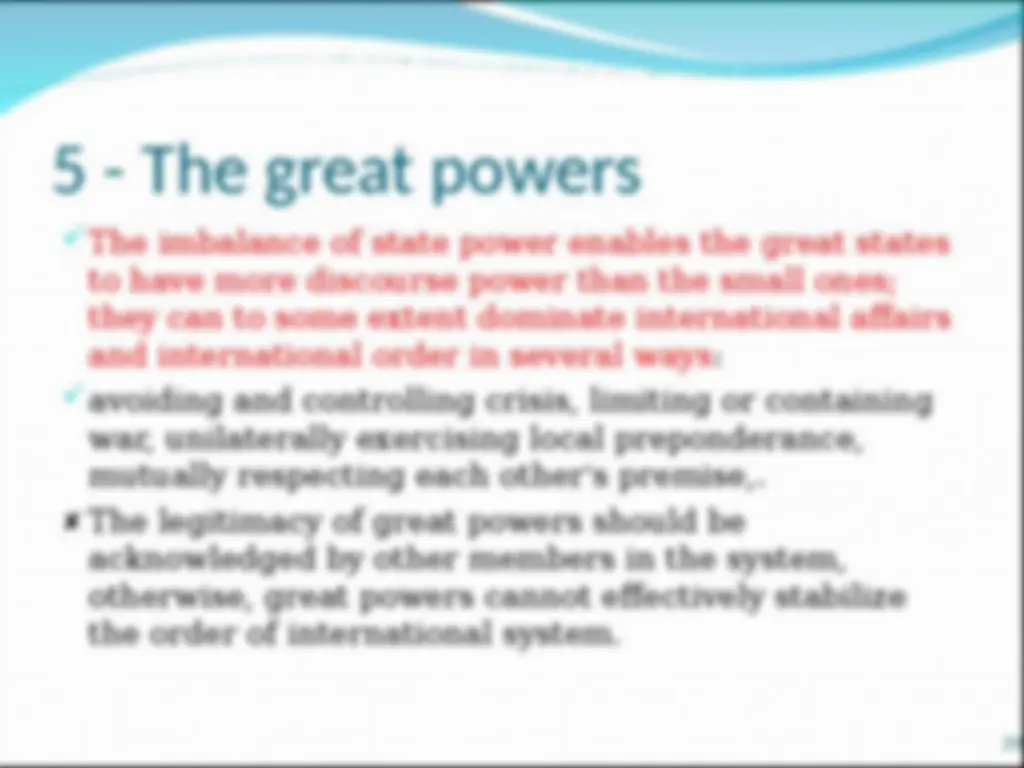
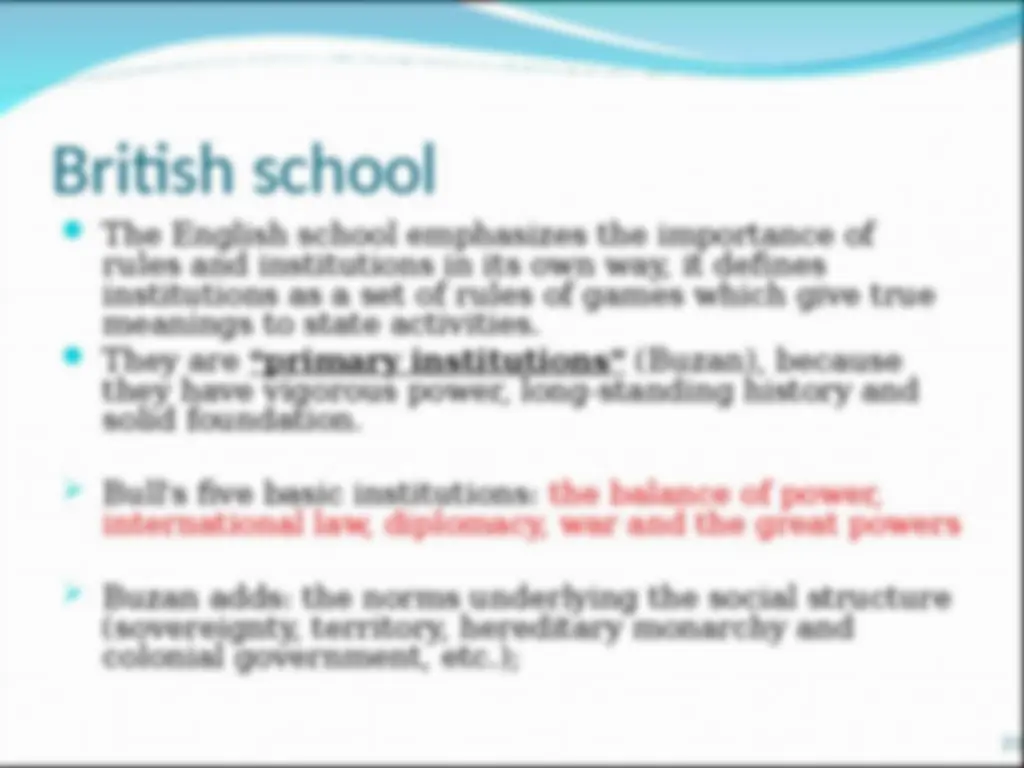



Study with the several resources on Docsity

Earn points by helping other students or get them with a premium plan


Prepare for your exams
Study with the several resources on Docsity

Earn points to download
Earn points by helping other students or get them with a premium plan
Community
Ask the community for help and clear up your study doubts
Discover the best universities in your country according to Docsity users
Free resources
Download our free guides on studying techniques, anxiety management strategies, and thesis advice from Docsity tutors
Selcuk University - Neba Wais Alqorni - Introduction International Relations (6,7,8)
Typology: Assignments
1 / 22

This page cannot be seen from the preview
Don't miss anything!















Also known as;
Liberal Realism ,
Rationalism,
Grotianism or
the British institutionalists ,
maintains that there is a 'society of states' at the international level, despite the condition of 'anarchy' (literally the lack of a ruler or world state).
Main Contribution to IRT: International Society
International society theory (the British school)
focuses on the shared norms and values of states and how they regulate international relations.
Examples of such norms include diplomacy, order, and international law.
Unlike neo-realism, it is not necessarily positivist.
Theorists have focused particularly on humanitarian intervention.
Evolution of the English School: 12 Stage 3 (77-92): Flourishing period of academic works. The English school made improvements to its theory of international society and strengthened its position in academia. A new generation of its members started to fill out the vacancies left out by the old members. (^) Stage 4 (92-present): Self-transcendence. (^) New members like Buzan and Dunne furnished the school’s international society theory. (^) In this period, the school discovered the American mainstream thoughts could not fully explain the post-Cold War political issues and in response, set it in relation to factors long ignored by the mainstream schools of thought, like history, culture and society. (^) Therefore, the English school was elevated to the height on a par with Constructivism.
3 traditions of thought in international politics— 3 “R” (Martin Wight)
R-1. Realist or Hobbesian, who views world politics in a constant status of war. (^) R-2. Rationalist (or Grotian), who acknowledges the birth of international politics out of an international society. (^) R-3. Revolutionist (or Kantian), who argues for the effect the community of mankind plays in international politics. 3R shapes the school’s perception into the nature of international relations by “viewing simultaneously the different dimensions and observing how they balance and interact with each other”.
② 3 key concepts:
Compared with Constructivism: The British School is similar to Constructivism in terms of understanding international relations: both stress on the value of social factors such as ideas, recognition and norms. But Constructivism is a sociological paradigm, with an attempt studying international society; while the British School is a historical philosophy, a political theory on international society.
goals by the international society: ① preservation of the system and society of states itself; ② maintenance of the independence or external sovereignty of individual states; ③ maintenance of peace in the sense of the absence of war among member states of international society as the normal condition of their relationship. The three conditions show that international cooperation is represented by the international society.
Two foundations for the cooperation in international society: common interests (or recognition of primary values), and shared value system (or ideational convergence in common culture or civilization).
1 - The balance of power (^) “states agree to regulate their interaction”. It functions in: ① the existence of a general balance of power throughout the international system as a whole serves to prevent the system from being transformed by conquest into a universal empire; ② the existence of local balance of power serves to protect the independence of states in particular areas from absorption or domination by a locally preponderant power; ③ the existence of the both general and local balance of power creates conditions for the institutions (such as diplomacy, war, international law and great power management) that guarantee an international order to function well. (^) The balance of power place an emphasis on cooperation not confrontation. (^) It highlights the cultures and values shared by members in a balanced system of power, regards them as key elements shaping and maintaining international order.
2 - International law
4 - War (^) War is also an institution of international society which could maintain the international order apart from the destruction war incurs. (^) From the perspective of the independent states, war is a policy means for a nation’s ends. (^) From the perspective of the international system, wars are decisive factors shaping the international system. They determine states’ fates, borders and regime jurisdiction. (^) From the perspective of the international society, war is on the one side a dimension of the anarchical international society, which should be limited and contained by international rules; and on the other side is a necessary means enforcing international rules, which is sometimes justified.
5 - The great powers